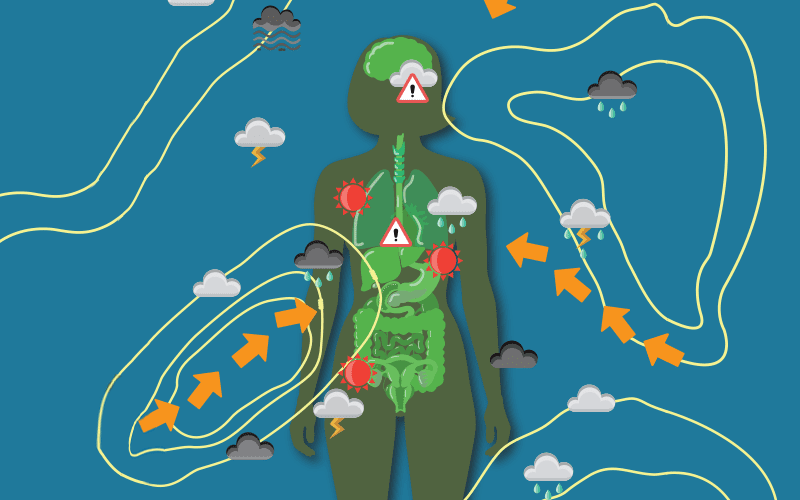In a time when woke culture has been fully embedded in healthcare, it may be easy to dismiss the notion that climate change is a healthcare issue. We should not be so quick to judge.
Climate change is a healthcare issue. Only not as we currently understand it. Climate change affects healthcare at a systemic level, not individually, and the distinction makes all the difference.
Currently, many in healthcare attempt to correlate climate change with public health crises, and then public health crises with adverse patient outcomes. Intuitively it makes sense. Forest fires that run rampant across disrupted ecosystems will affect air quality, which increases the likelihood that pediatric patients with asthma will develop medical emergencies.
But this logic misses the mark when discussing the real impact of climate change on healthcare. Climate change is a global phenomenon, with a complex set of causes and effects. Public health is similarly complex. Attributing complex causes and effects to an individual is a logical error – no matter how enticing it may appear.
Instead we must look at the systemic effects of climate change on healthcare in broad terms. In Houston, many safety net hospitals – those that depend on public health funding to service the medically indigent – are at risk of severe flooding in the coming years.
This is an infrastructure problem. And Houston is not the only city with hospitals facing climate induced structural threats. Healthcare systems across the country are disrupted by increasingly intense weather disasters like hurricanes, flooding, heat waves, and even cold snaps.
The solution is to upgrade the infrastructure. But this is a form of healthcare cost. Only we do not think of costs in this way. When we calculate healthcare costs from climate change, we calculate in terms of individual patients or aggregate sums. Neither of which is of help in enabling real solutions.
In November, the prestigious journal, The Lancet, published the 2021 report of the Lancet Countdown on Health and Climate Change. The authors, some of the most established thought leaders in this space, quantified the healthcare impact of climate change at large and on individual patients. It was a masterfully researched work that did everything but provide meaningful solutions.
And this is the problem. Legislators and policy makers do not respond to data. They respond to story lines. Data that presents complex healthcare issues in broad terms fails to resonate among those with legislative power. Data that contextualizes the impact on patients individually is rife with biases and readily dismissed.
The solution is to present data that contextualizes it at a level which lends itself to a narrative. This requires new methods of research, one in which we study small systems of healthcare using context specific data. Instead of studying the national impact of a particular disease, study the impact across one suburb or one part of a city.
It makes the data more palatable to those who can make decisions out of it – which is the point of public health data in the first place.
What we have now is an antiquated notion that all data must either be as broad or as individualized as possible. It is indoctrinated in all the public health studies we see. Instead we need data at the level where policy makers easily can make sense of it. The less they have to think, the more likely they are to act.
This is the nature of public health policy. But it is also the proper way to characterize the impact of climate change on healthcare.
Systems are only understood at the level which people wish to see them. Climate change affects the system of healthcare more than any one individual. Data should follow accordingly.
Data should not force people to think about the numbers. It should be calculated at the level people already think.
This is the surest way to convince the skeptical that climate change is indeed a healthcare issue.















